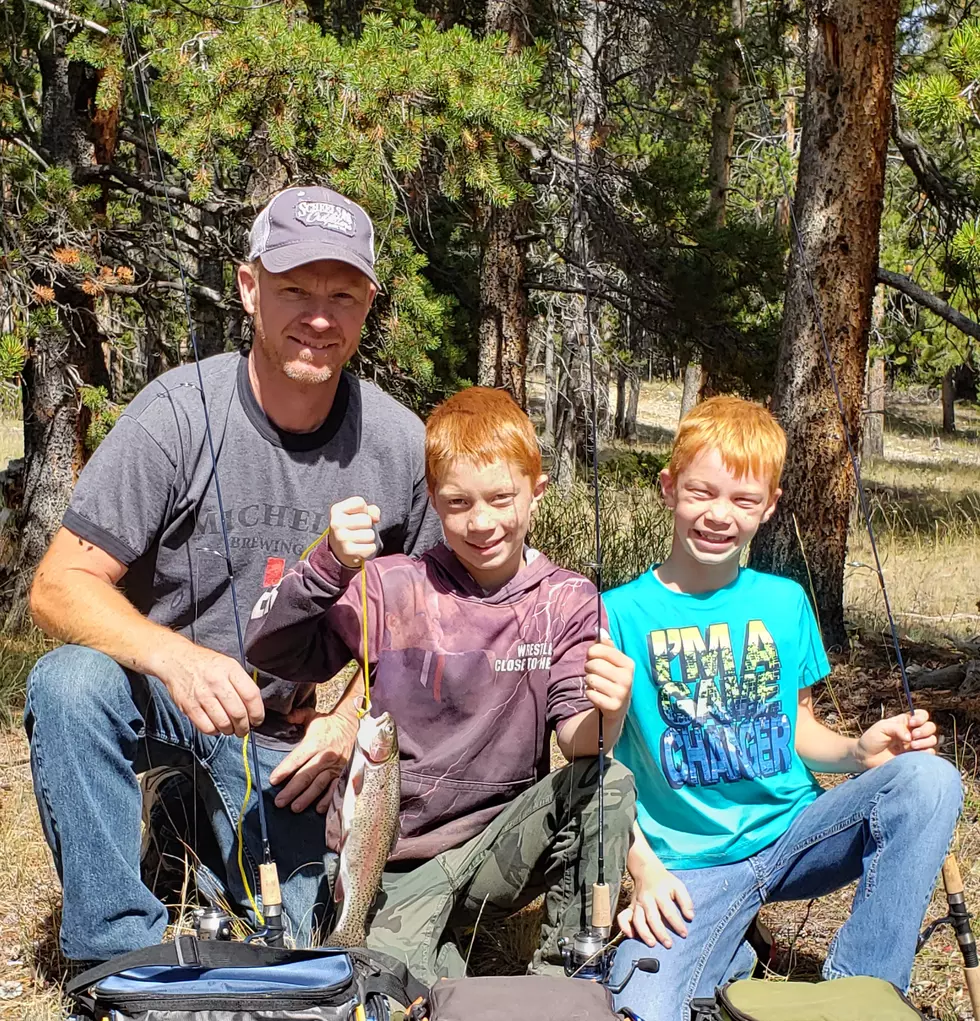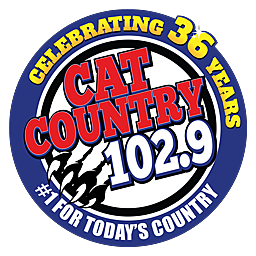
Top 10 Country Songs You Might Not Know Shel Silverstein Wrote
Shel Silverstein is known for his whimsical and twisted children's poetry, compiled in books such as Where the Sidewalk Ends and A Light in the Attic. However, the Chicago native had many talents: He also wrote and illustrated the beloved children's book The Giving Tree and was a prolific songwriter, especially for country artists.
In fact, Silverstein's songs were recorded in the 1960s and '70s by Johnny Cash, Bobby Bare, Kris Kristofferson, Waylon Jennings, Emmylou Harris, Judy Collins and dozens more artists. Multiple musicians released de facto covers albums featuring only Silverstein songs; Bare and his son, Bobby Bare Jr., even released a 2010 tribute album, Twistable, Turnable Man: A Musical Tribute to the Songs of Shel Silverstein, featuring luminaries covering Silverstein's songs.
It's easy to hear why Silverstein's songs were so popular: Not only are they clever and funny, but they're also rife with melancholy and heartbreak, and feature vivid characters that might be occasionally down on their luck -- but still maintain their pride and dignity. Silverstein never mocked his protagonists; he simply tried to empathize with them.
Below, learn more about 10 country songs you might not have realized were written by Silverstein:
- 10
Tompall Glaser's "Put Another Log on the Fire (Male Chauvinist National Anthem)"
From 1975's 'Tompall (Sings the Songs of Shel Silverstein)'Outlaw country artist Glaser had some minor success in the mid-'70s, and even appears on the seminal Wanted! The Outlaws LP. But his highest-charting single was "Put Another Log on the Fire" (subtitled "Male Chauvinist National Anthem"), which, appropriately, first appeared on his 1975 album Tompall (Sings the Songs of Shel Silverstein). The song is a classic case of burying the lede: The male protagonist is blithely ordering his wife to wait on him hand and foot, with no self-awareness, but then says, "Then put another log on the fire, babe / And come and tell me why you're leaving me." The song peaked at No. 21 on the country singles charts.
- 9
Lester Flatt's "February Snow"
From 1972's 'Foggy Mountain Breakdown'"February Snow" has been recorded by multiple artists, including Bobby Bare. However, Flatt's version, found as the lead-off track on his 1972 LP Foggy Mountain Breakdown, is particularly evocative. Fiddle, banjo and intricate multi-part harmonies combine to create a wistful backdrop for lyrics detailing a couple parting in (bitter)sweet sorrow.
- 8
Kris Kristofferson's "Son of a Scoundrel"
From 1970's 'Ned Kelly' SoundtrackSilverstein composed music for the soundtrack of the 1970 film Ned Kelly, which stars Rolling Stones frontman Mick Jagger. One of the more colorful songs is the Kristofferson-sung "Son of a Scoundrel," a gruff waltz full of colorful (and proudly unsavory) characters that feels like a PG-13 version of Silverstein's children's poetry.
- 7
John Prine's "This Guitar Is for Sale"
From 2010's 'Twistable, Turnable Man: A Musical Tribute to the Songs of Shel Silverstein'Another song recorded by Bobby Bare, "This Guitar Is for Sale," was covered by Prine on a Silverstein tribute album that also features Lucinda Williams, Nanci Griffith, Kris Kristofferson and many others. Prine takes a sparse approach to the three-hanky song, which finds an artist reminiscing about his past successful musical career, which he's reluctantly giving up.
- 6
Buck Owens' "On the Cover of the Music City News"
From 1974's 'It's a Monster's Holiday'This Owens song isn't a straight Silverstein cover -- but it does feature new parody lyrics based on the Silverstein-penned "The Cover of Rolling Stone," which was a pop hit for Dr. Hook and the Medicine Show in 1973. Owens' version is the cheeky lament of a country singer who has it all -- hits, riches, family respect -- but just can't get coverage in Music City News, a now-defunct country music publication. The song landed at No. 9 on the country charts.
- 5
Emmylou Harris' "Queen of the Silver Dollar"
From 1975's 'Pieces of the Sky'"Queen of the Silver Dollar" features a protagonist who is the belle of the ball at her local watering hole. The song insinuates some of her outward glamour is a put-on -- perhaps because she's had her heart broken by the omniscient narrator, who seems a bit guilty as he intones, "She was once an ordinary girl / With ordinary dreams / 'Til I found her and I won her / And I brought her to this world." In any case, "Queen of the Silver Dollar" is deeply empathetic toward the titular queen, which makes it quite the moving song.
- 4
Waylon Jennings' "The Taker"
From 1971's 'The Taker/Tulsa'Written with Kris Kristofferson, the country Top 5 hit "The Taker" details all the ways the sketchy protagonist is going to take advantage of a woman -- mostly by charming her and then pulling the rug out from under her feet and wounding her pride: "And after he's taken the body and soul she gives him / He'll take her for granted / Take off and leave her." The worldplay in the song is vintage Silverstein, as it sets up a scenario that's both playful and heartbreaking.
- 3
Bobby Bare's "Sylvia's Mother"
From 1972's 'What Am I Gonna Do?'Bare recorded a huge number of Silverstein songs, but his first big hit came with "Sylvia's Mother," which reached No. 12 on the country singles chart. The tune details a man desperately trying to reach an ex, because she's up and leaving town, but who is stonewalled by her mother and the fact that he needs to put more money into the payphone. He begs and pleads for the chance to say goodbye -- but as the song ends, it never comes.
- 2
Loretta Lynn's "One's on the Way"
From 1971's 'One's on the Way'Lynn's 1971 No. 1 hit is a wry look at the nascent sexual revolution and the stresses of motherhood. The song's lyrics contrast celebrity glitz and glamour in big cities with the harried life of a Topeka, Kan.-living protagonist juggling several kids and (as the title infers) another "on the way." Although ostensibly lighthearted, the song does offer pointed social commentary: "And the pill may change the world tomorrow, but meanwhile, today / Here in Topeka, the flies are a buzzin' / The dog is a barkin' and the floor needs a scrubbin'." For good measure, Silverstein also wrote Lynn's "Hey Loretta."
- 1
Johnny Cash's "A Boy Named Sue"
From 1969's 'At San Quentin'Believe it or not, Silverstein wrote one of Cash's most famous songs, "A Boy Named Sue," which topped the country and adult contemporary charts, and landed at No. 2 on the pop charts. The song -- which also won a Grammy in 1970 -- follows a man who is upset that his dad, who left his family, gave him what's traditionally a girl's name. Although he eventually meets his dad and attempts to get revenge, the song has several twists -- in true Silverstein fashion -- that end up both heartwarming and funny. For good measure, Silverstein also wrote the song's sequel, "The Father of a Boy Named Sue" and another song Cash recorded, "25 Minutes to Go."
More From Cat Country 102.9










